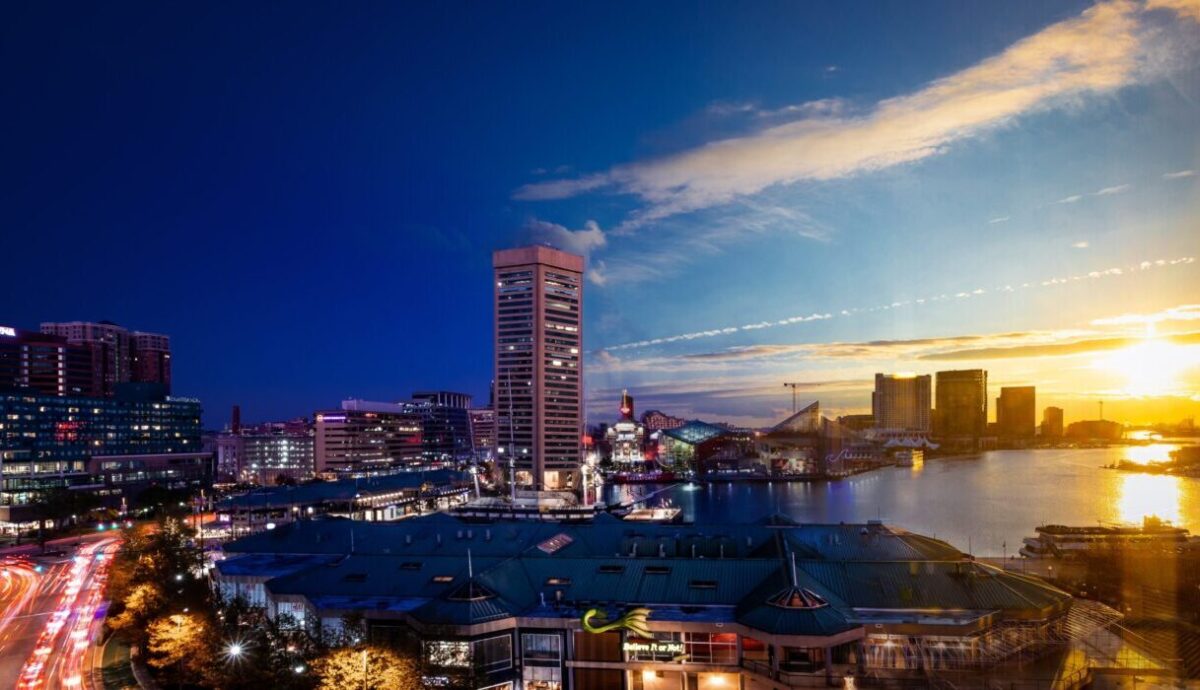The emergence of the US Economic Development Administration’s (EDA) Tech Hubs program marks a moment for the city’s technology ecosystem with the forming of an eclectic consortium led by the Greater Baltimore Committee (GBC) and supported by a slew of other organizations and institutions.
This collective effort aims to harness the power of high-growth technologies to drive economic growth, foster innovation and promote inclusivity beyond traditional tech epicenters like Silicon Valley and Boston.
“The Baltimore metropolitan statistical area (MSA) is competing for one of 20 federal Tech Hub designations, which is a new $10 billion program to provide catalytic investments to grow our regional tech ecosystem,” said Pothik Chatterjee, chief economic officer of the GBC. “Our technology focus area is the intersection of AI and biotech, given the strength of our assets and growth potential of this market combined with Baltimore’s diverse tech talent.”
Chatterjee’s comment underscores a main component of Baltimore’s application for the EDA Tech Hubs program’s Phase 1: a commitment to merging the realms of AI and biotechnology. This strategy leverages the region’s unique strengths and positions it at the forefront of innovation.
“Our core technology is predictive technologies that improve health and wellbeing at the individual, community and national level,” Chatterjee said. “We estimate the region could receive up to $500 million in funding to support the expansion of our tech ecosystem, creating at least 52,000 jobs and $3.2 billion in economic impact by 2030.”
Chatterjee later updated the economic impact by 2030 to $4.2 billion, based on additional analysis.
Other involved entities include UpSurge Baltimore; University of Maryland, Baltimore County; Digital Harbor Foundation; and Sonavi Labs.
The role of collaboration and inclusivity
While the EDA Tech Hubs’ technological focus is certainly impressive, it’s the collaborative and inclusive spirit that truly sets Baltimore apart, according to UpSurge Baltimore COO and 2023 RealLIST Connector Madeleine Stokes.
“What makes Baltimore unique compared to other tech hubs is exactly this collaborative approach that has mobilized stakeholders from across sectors,” Stokes said. “We have mobilized and built momentum around our collective vision to become the first Equitech city — an inclusive tech city that unlocks opportunities and economic benefits for residents.”
This vision is further supported by the diverse range of consortium members, each bringing their respective expertise to the table. The members (see below for a full list) range from academic institutions like UMBC and Johns Hopkins University to private companies and investors like Fearless and Early Charm Ventures. It also includes a mix of government agencies and nonprofit organizations, with a geographic base ranging from the city to the surrounding counties.
The EDA Tech Hubs program’s significance — over five years, it’s slated to be funded by $10 billion from the federal government — may represent a turning point for economic development in a region that Chatterjee said hasn’t proportionally benefitted from its economic assets.
“Despite Baltimore’s proximity and access to the existing global tech hubs in the U.S., our region’s economy has not produced the level of economic opportunity that mirrors the potential of our talent pipeline and existing cluster of startups and companies,” he said.
Baltimore’s standing as a growing tech center is undeniable. The region scored #17 in CBRE’s latest Scoring Tech Talent Report, outshining metro areas across the country. Moreover, Baltimore is the biggest city in a state that nabbed second in the nation for successful minority entrepreneurs. The city’s commitment to diversity, bolstered by active engagement from public HBCUs like Morgan State University and Coppin State University, adds a unique dimension to the EDA Tech Hubs application’s potential.
Baltimore’s proposal is ambitious and comprehensive, including an accelerator and funding program, an anchor innovation hub, lab infrastructure, biomanufacturing facilities and workforce development as a multi-pronged approach that aims to foster innovation, empower Baltimore’s communities and create a sustainable technology ecosystem.
Meet the consortium
The consortium, consisting of 38 companies, agencies and organizations, plays a crucial role in shaping the potential EDA Tech Hubs vision. As the Economic Development Agency prepares to name the 20 Tech Hubs in September 2023 — the Phase 1 application closes on Aug. 15 — the Baltimore region stands on the precipice of what may be a new era, with each of these entities forming part of what could come.
Here are the members as they stand:
- Greater Baltimore Committee
- Morgan State University
- Coppin State University
- Johns Hopkins University
- Loyola University Maryland
- University of Maryland Medical System
- University of Maryland, Baltimore
- University of Maryland, Baltimore County
- Towson University
- Maryland Department of Commerce
- TEDCO
- Baltimore Metropolitan Council
- City of Baltimore
- UpSurge Baltimore
- Fearless
- Conscious Venture Partners
- Blackbird Laboratories
- Early Charm Ventures
- Mindgrub Technologies
- CareFirst BlueCross BlueShield of Maryland
- Evergreen Advisors
- Fulton Bank
- BioBuzz
- LaunchPort
- Baltimore Development Corporation
- Baltimore County Economic Development
- Howard County Economic Development Authority
- Anne Arundel County Economic Development
- Harford County Economic Development
- Carroll County Economic Development
- Queen Anne’s County Economic Development
- Cecil County Economy Development
- Catalyte
- NPower
- Digital Harbor Foundation
- Abell Foundation
- Last Mile Education Fund
- World Trade Center Institute
In addition, there are a series of additional partners that aren’t considered part of the consortium, including:







